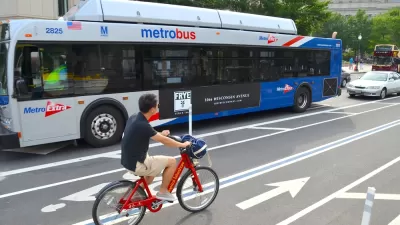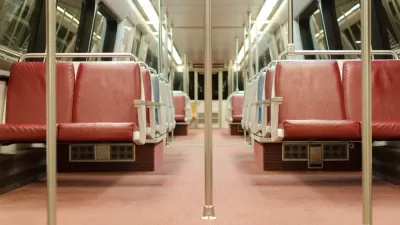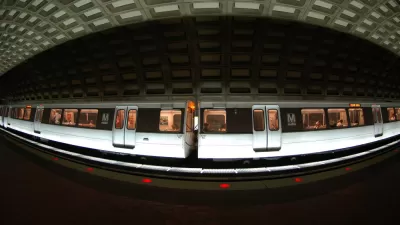The executive director of a research and policy center on privatization and responsible contracting says a proposal to privative parking operations at the Washington Metro Area Transit Authority would bring a half century of regret.
"Two weeks ago, WMATA began taking bids from private companies to operate its parking facilities," according to an op-ed by Donald Cohen, who is the executive director of In the Public Interest, research and policy center on privatization and responsible contracting.
"In exchange for a big up-front payment to the agency, the winning company would collect fees from people parked at train stations for the next 50 years," writes Cohen, who argues that the WMATA might regret that decision for the next 50 years as well.
Cohen calls the proposal "foolish," and lists reasons for doing so, including:
It discourages public transit. In order for the private company to make a profit, parking rates will have to go up — as much as 3% a year, according to WMATA. If it costs more money to park and ride the train, people may look for other ways into the city.
According to Cohen, the proposal to privatize WMATA's parking gets at fundamental questions about public goods and services, with answers crucial to public transit and cities as a whole.
The proposal to privatize WMATA's parking continues a trend of cash-strapped transit agencies looking to privative portions of their operations to cut costs. The Massachusetts Bay Transportation Authority, for instance, is considering a plan to privatize specific types of employment in the agency, such as bus drivers and maintenance workers. Cohen also cites the example of Chicago's decision to privatize its parking meters—a decision described in the past as "Exhibit A for bad public contracting."
FULL STORY: The Deal That Could Hurt D.C. For 50 Years

Maui's Vacation Rental Debate Turns Ugly
Verbal attacks, misinformation campaigns and fistfights plague a high-stakes debate to convert thousands of vacation rentals into long-term housing.

Planetizen Federal Action Tracker
A weekly monitor of how Trump’s orders and actions are impacting planners and planning in America.

In Urban Planning, AI Prompting Could be the New Design Thinking
Creativity has long been key to great urban design. What if we see AI as our new creative partner?

King County Supportive Housing Program Offers Hope for Unhoused Residents
The county is taking a ‘Housing First’ approach that prioritizes getting people into housing, then offering wraparound supportive services.

Researchers Use AI to Get Clearer Picture of US Housing
Analysts are using artificial intelligence to supercharge their research by allowing them to comb through data faster. Though these AI tools can be error prone, they save time and housing researchers are optimistic about the future.

Making Shared Micromobility More Inclusive
Cities and shared mobility system operators can do more to include people with disabilities in planning and operations, per a new report.
Urban Design for Planners 1: Software Tools
This six-course series explores essential urban design concepts using open source software and equips planners with the tools they need to participate fully in the urban design process.
Planning for Universal Design
Learn the tools for implementing Universal Design in planning regulations.
planning NEXT
Appalachian Highlands Housing Partners
Gallatin County Department of Planning & Community Development
Mpact (founded as Rail~Volution)
City of Camden Redevelopment Agency
City of Astoria
City of Portland
City of Laramie





























